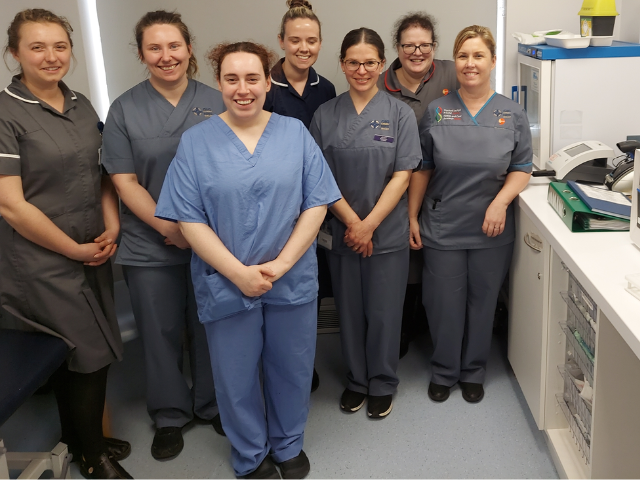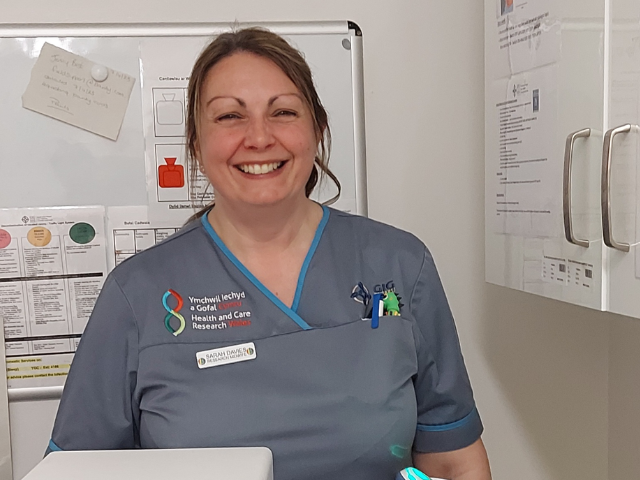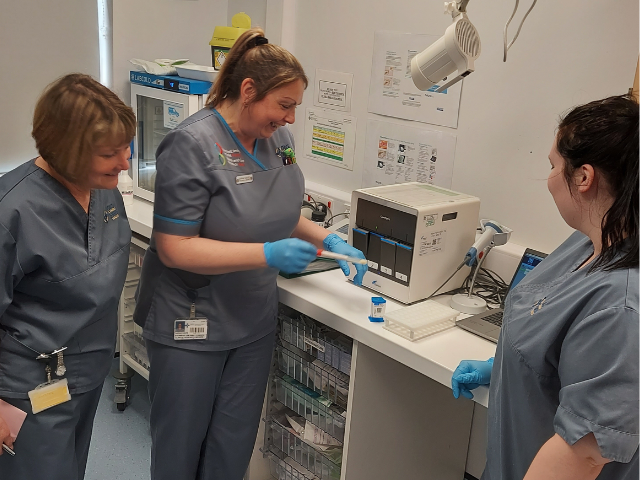
“We don’t just deliver babies, we deliver research” – the midwives in Wales saving lives
5 May
This International Day of the Midwife (5 May 2023) we’re celebrating the hardworking research midwives across Wales making pregnancy and childbirth safer.
Research midwives at Betsi Cadwaladr University Health Board were the first in Wales to become part of a UK-wide study which aims to prevent new-born babies from contracting a potentially life-threatening infection.
With one in four women unaware they are carrying the bacteria, group B streptococcus (GBS) can be passed from mother to child during birth. As a result, some babies develop early onset GBS sepsis which can cause life-long disabilities or even death.
The GBS3 study, led by Nottingham University and funded by the National Institute for Health and Care Research, aims to find out whether routine testing for pregnant women can reduce the risk to new-borns.
As part of the trial, which will also open soon in Hywel Dda University Health Board and Cardiff and Vale University Health Board, midwives are working to compare the current ways of testing with the effectiveness of testing expectant mothers before their delivery date and testing at the start of labour.
Sarah Davies, a Research Midwife working on GBS3 in North Wales, said: “In the UK, group B strep is normally found if a woman is tested for something else, like thrush for example, or if they’re displaying symptoms. If they test positive, the mother is given antibiotics during labour, greatly reducing the risk of passing it on. As GBS doesn’t always have symptoms most women aren’t tested.
“That’s why this study is so important. By testing more routinely we could give treatment more appropriately and reduce the number of babies that catch GBS. We don’t know what the outcome of the study will be yet but, ultimately, we want to save babies’ lives.”

Research teams in Wales will contribute to the overall study goal of recruiting 320,000 women across 80 research centres in the UK.
Sarah, who has been a Research Midwife for over 10 years, continued: “What’s really great about this study is that it’s following an opt-out method; women are offered a GBS test as part of their standard care. They can always decline the test of course.
“The clinical midwifery teams in both the hospital and community really are amazing, they've got so much on, but they're still so willing to take these projects on and deliver them. That really highlights, not only the dedication of midwives, but the value and importance of research.”

Jayne Goodwin, National Head of Research Delivery at Health and Care Research Wales, said: “We are committed to delivering this study to ensure women and babies living in Wales are represented in the research. The study will be answering important questions around how we can reduce the number of new-borns contracting GBS.
Research midwives are absolutely essential to making research like this happen.
Our Research Midwives in Wales undertake a highly specialist role and are tireless advocates for research in their practice which, without doubt, drives the extremely high standards of care and services women receive in Wales. I’d like to say diolch yn fawr iawn to all midwives across Wales this International Day of the Midwife.”
Betsi Cadwaladr University Health Board are due to finish their part of GBS3 on 31 March 2024.
To keep up-to-date with all the latest research news in midwifery and beyond sign up to the Today’s Research newsletter.